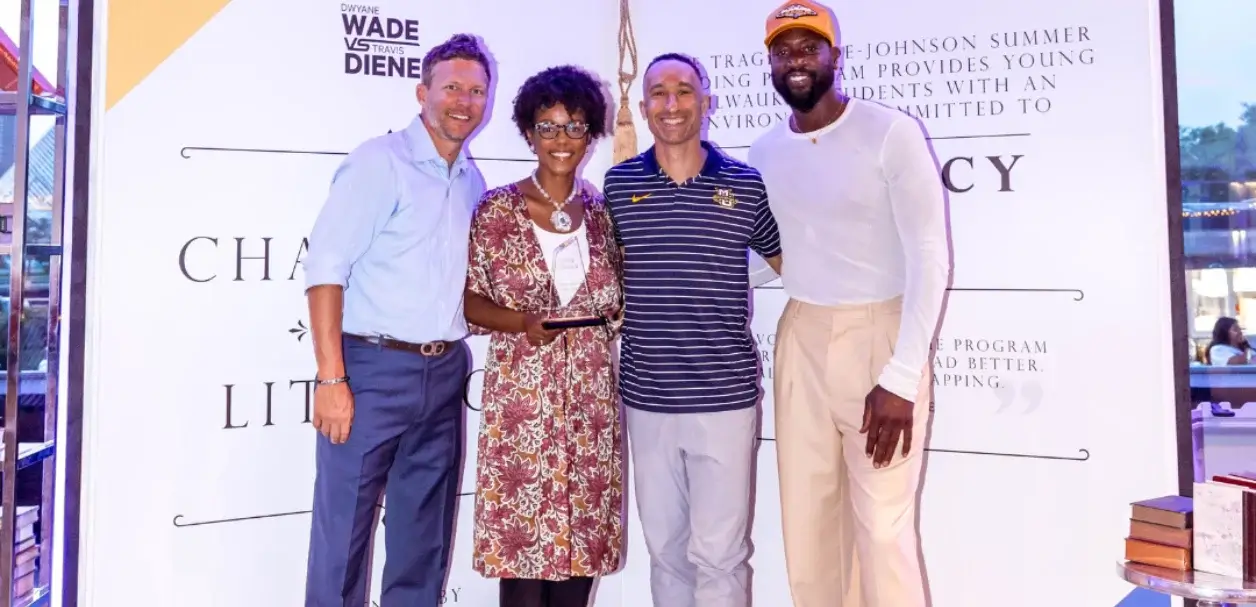Picture this: A stage set with a seven-foot tall book, a bank of soaring windows revealing downtown Milwaukee’s skyline, and an energetic crowd of businesspeople, educators, and philanthropists.
Just days before my book Reading for Our Lives toasted its first anniversary, I was at this event to be honored as a Champion for Literacy by former NBA stars and Marquette University basketball legends Dwyane Wade and Travis Diener.
No ordinary honor roll, this celebration was part of a sporting three-day Wade vs. Diener showdown, where the pair faced off to do the most for local children. They leveraged their famously competitive spirits to outdo one another in raising funds and awareness for vital youth programs, including the Tragil-Wade Johnson Summer Reading Program at Marquette.
From the stage, I looked around and saw an impressive group assembled. Without exception, the donors and attendees were people with many accomplishments and abilities–including the crucial but easily overlooked skill of able, fluent reading.
They were the kinds of people who can graduate from college, navigate the workforce, buy homes, vote in elections and (mostly) understand the bonds, levies, and referendums listed on the ballot. The kind of people who attend fundraising events for important programs like this one.
In many ways, the attendees’ successes were very apparent. What no one could see, though, were the thousands of relationships and experiences that contributed to all of our reading (and life) success. No one could see the parents or grandparents who read to us. The early caregivers who gave us the words to describe our environments, thoughts, and emotions. The teachers or tutors who painstakingly taught us to connect sounds and letters.
And that’s part of the challenge of ensuring literacy for all. There’s so much that goes into reading success that we don’t see. When we spend most of our time among readers, it’s hard to imagine the magnitude of people who struggle to make sense of street signs, product packaging, and the basic print of everyday life.
So I applaud Dwyane Wade and Travis Diener for using their platforms to highlight this challenge and raise funding to support the direct, structured teaching of reading to kids who need it most.
I thank them for creating space to grapple with this critical issue in Milwaukee, which offers a microcosm of our nation’s reading woes.
Wisconsin has the widest reading-score gap between black and white students of any U.S. state –a 50-point gap, according to the U.S. Department of Education. There’s also a 35-point gap between Hispanic and white students and a 33-point gap between lower- and higher-income students.
Only 12% of all fourth-grade students in Milwaukee (and just 5% of the black ones) read proficiently, leaving thousands on track to join the ranks of the 1 in 4 Milwaukee County adults who are functionally illiterate, per the Program for the International Assessment of Adult Competencies (PIAAC).
And we have ample research documenting the ways that low to no literacy creates a direct pipeline to joblessness, homelessness, hopelessness, poverty, crime, and pretty much every other social ill you can imagine.
That’s why efforts like the summer reading program that the event supported are so important.
How a Summer Reading Program Addresses the Crisis
The teachers, administrators, and mentors of the Tragil-Wade Johnson Summer Reading Program led by Dr. Kathleen Clark do incredible work to serve dozens of children.
This summer, they assessed kids’ reading needs and provided tailored, structured instruction in phonics to advance each child’s skills.
To give you a sense of the need, imagine a student who entered kindergarten in the fall of 2020, after Covid hit, and had that school year completely disrupted by pandemic-wrought school closure and disruption—on top of preexisting family stress and poverty.
Imagine that child, now a rising third grader, arriving at the summer reading program not knowing the alphabet and unable to form the letter A. Imagine the feeling of defeat hanging over that child after spending three years in school and still understanding so little about our written language.
And then imagine the child’s confidence growing as they’re greeted each day by nurturing staff committed to meeting their needs. Staff with the time, resources, and know-how to help them discern the sounds within words. To help them clap out syllables and break words into sounds.
Who thoughtfully show them the connections between those sounds and letters on paper. Who hand them books well-suited to their skills and give them the gift of reading simple texts.
That’s a win. Not just for those kids, that program, or the generous funders who supported it. It’s a win for our society and collective future.
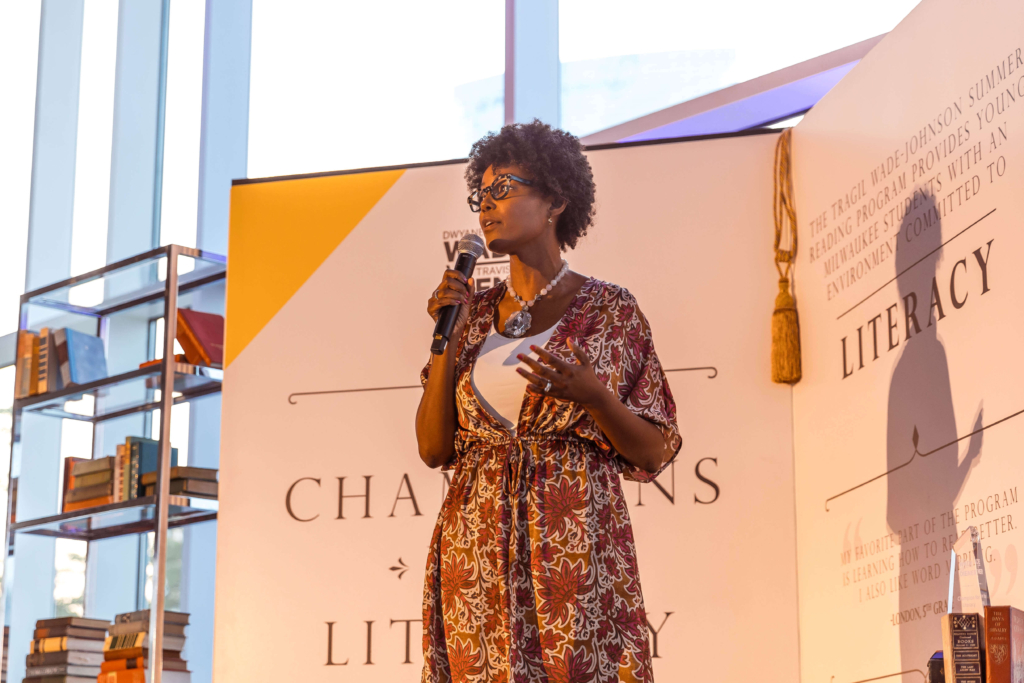
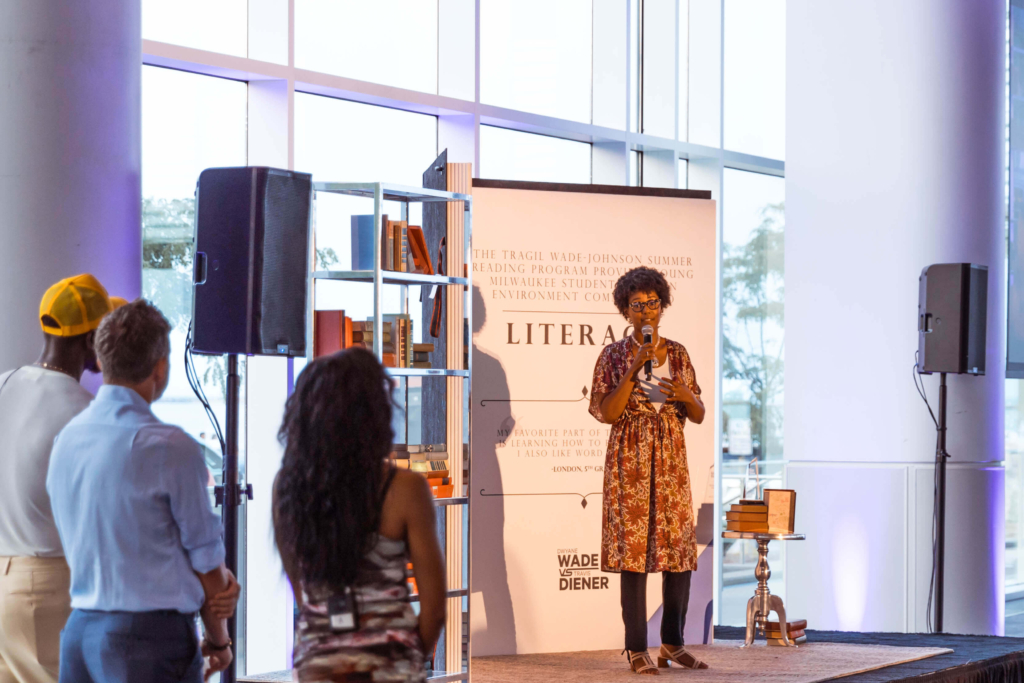
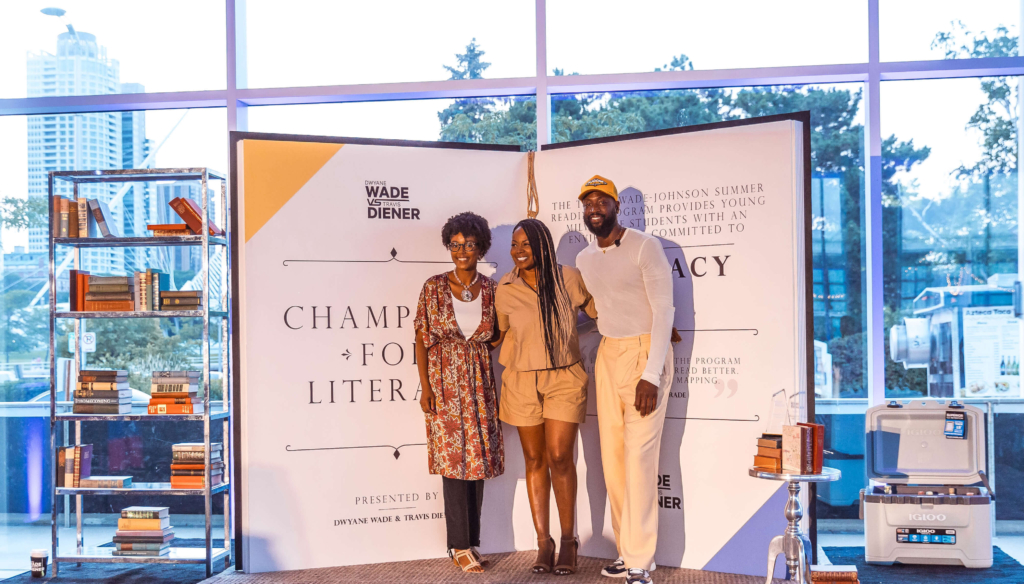
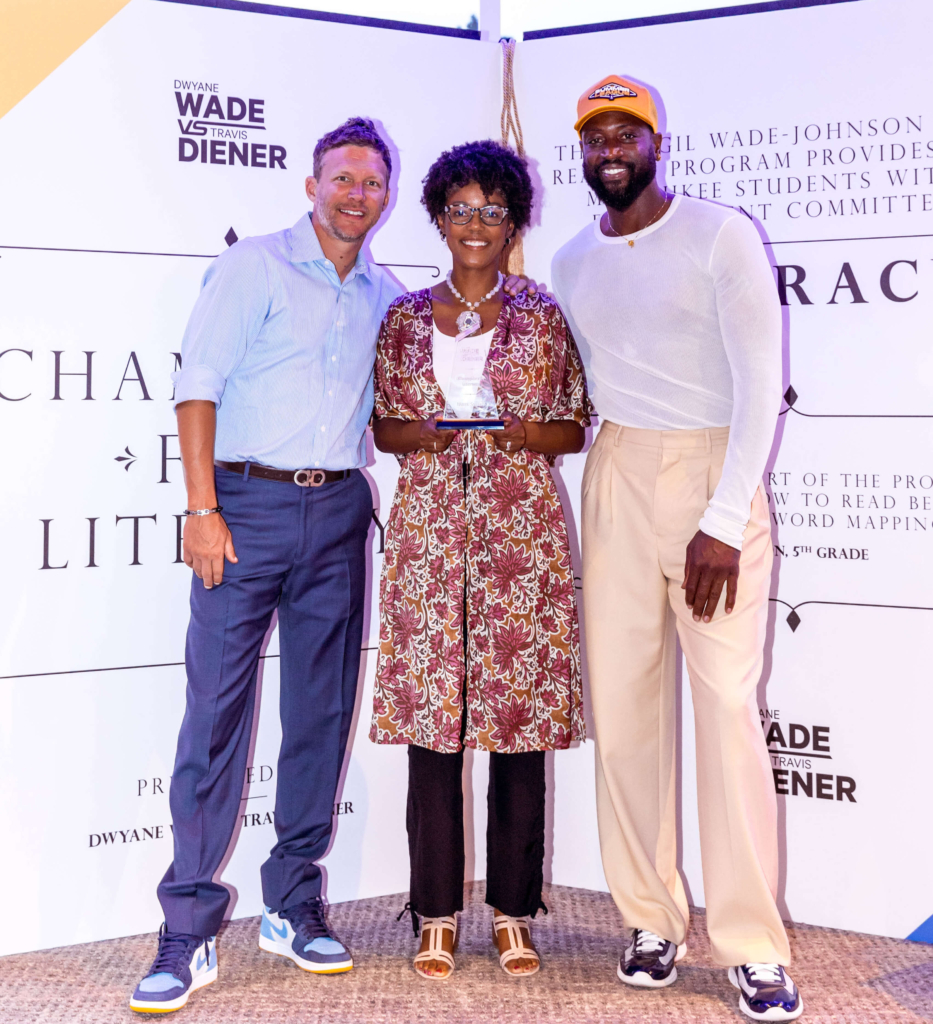
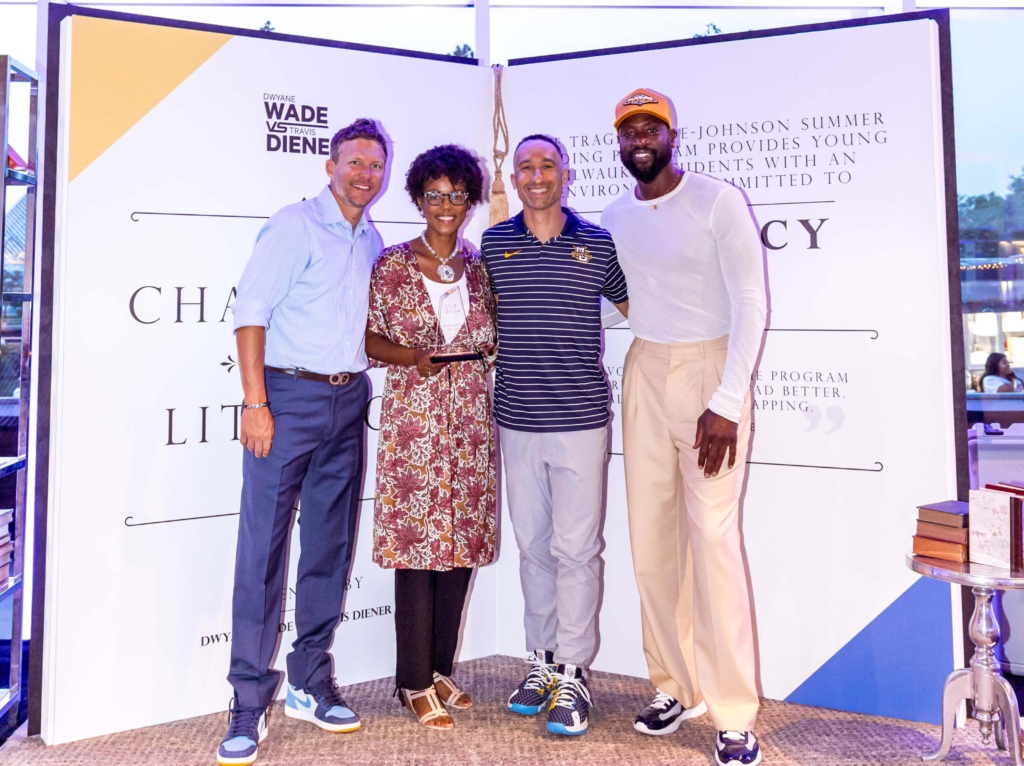
Like this post? Please share it!

